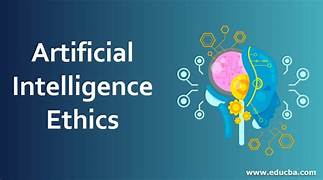Machine Ethics: Incorporating Human Values Into Autonomous Systems
The integration of ethical frameworks into autonomous systems is a pressing concern in the era of advanced artificial intelligence (AI). As machines take on more decision-making roles, ensuring they align with human values becomes paramount. Machine ethics focuses on embedding principles of morality and ethics into AI systems to ensure they operate responsibly. This article delves into the significance of machine ethics, the challenges involved, and the approaches to incorporating human values into autonomous systems.
What is Machine Ethics?
Machine ethics is a field of study that addresses the moral behavior of artificial agents. It seeks to develop systems capable of making ethical decisions, similar to those made by humans in complex situations. Key aspects include:
- Moral Reasoning: Ensuring systems can evaluate situations based on ethical principles.
- Value Alignment: Aligning machine actions with human values and societal norms.
- Responsibility: Establishing accountability for decisions made by autonomous systems.
By integrating these components, machine ethics aims to create AI that behaves in ways beneficial to humanity.
Importance of Machine Ethics
1. Trust and Safety
Ethical AI enhances trust by ensuring systems act predictably and in accordance with human expectations. In applications such as autonomous vehicles and healthcare, trust is critical for adoption and safety.
2. Avoiding Harm
Embedding ethical considerations helps prevent unintended consequences, such as biased decision-making or actions causing harm to individuals or groups.
3. Legal and Regulatory Compliance
Machine ethics ensures compliance with laws and regulations, minimizing risks of litigation and fostering societal acceptance.
4. Long-Term AI Development
Ethical frameworks provide a foundation for sustainable AI advancements, addressing concerns about superintelligent systems potentially acting against human interests.
Challenges in Incorporating Human Values
1. Complexity of Human Morality
Human values are diverse, context-dependent, and sometimes conflicting. Translating these into machine-readable rules is a formidable challenge.
2. Bias in Training Data
AI systems learn from data, which may contain biases reflecting societal inequalities. This can lead to unethical outcomes if not addressed.
3. Dynamic and Cultural Variability
Ethical norms evolve over time and vary across cultures. Developing systems that adapt to these changes without compromising functionality is difficult.
4. Interpretability and Transparency
Ensuring machines provide clear explanations for their decisions is essential for accountability but remains a technical hurdle.
5. Conflict Resolution
In scenarios with competing values, such as privacy versus security, autonomous systems must navigate trade-offs without human intervention.
Approaches to Machine Ethics
1. Rule-Based Systems
These systems follow explicit ethical guidelines programmed by developers. Examples include Asimov’s Three Laws of Robotics, which prioritize human safety and obedience to lawful commands.
- Advantages: Simplicity and predictability.
- Limitations: Inflexibility in complex, unforeseen situations.
2. Machine Learning and Ethics
AI systems can be trained to recognize ethical patterns through supervised learning. By analyzing large datasets, they can infer appropriate actions based on historical examples.
- Advantages: Adaptability and scalability.
- Limitations: Risks of perpetuating biases in training data.
3. Value Alignment Techniques
Research focuses on ensuring AI aligns with human intentions, even in ambiguous scenarios. This includes approaches like inverse reinforcement learning, where systems infer human preferences by observing behavior.
4. Hybrid Models
Combining rule-based frameworks with machine learning allows systems to adapt while adhering to predefined ethical constraints. This hybrid approach balances flexibility and control.
5. Ethics Advisory Panels
Incorporating human oversight through ethics committees or panels ensures AI systems operate within acceptable boundaries. These panels provide guidance on ethical dilemmas and system design.
Applications of Machine Ethics
1. Autonomous Vehicles
Ethical decision-making is critical for self-driving cars, especially in scenarios involving potential harm. For example, how should a car prioritize passenger safety versus pedestrian safety in unavoidable collisions?
2. Healthcare
AI systems in healthcare must navigate ethical dilemmas, such as allocating limited resources or balancing patient privacy with data sharing for research.
3. Military and Defense
Autonomous weapons raise significant ethical concerns. Machine ethics ensures these systems comply with international laws and minimize harm to civilians.
4. Content Moderation
AI-driven platforms for moderating online content must balance freedom of expression with preventing harm from misinformation or hate speech.
5. Customer Service
Chatbots and virtual assistants equipped with ethical reasoning can handle sensitive situations with empathy and fairness, enhancing user satisfaction.
Future Directions in Machine Ethics
1. Global Collaboration
Developing international standards for machine ethics promotes consistency and reduces the risks of unethical AI deployment across borders.
2. Ethical AI Education
Incorporating ethics into AI curricula ensures future developers prioritize responsible practices.
3. Real-Time Ethical Reasoning
Advances in computational power and algorithms may enable systems to perform ethical reasoning in real time, adapting to dynamic environments.
4. Public Involvement
Engaging diverse stakeholders, including ethicists, policymakers, and the public, ensures AI systems reflect societal values.
5. Continual Learning
Autonomous systems must evolve with changing ethical norms, requiring mechanisms for continual learning and adaptation.
Conclusion
Incorporating human values into autonomous systems is both a technical and ethical imperative. By addressing challenges and leveraging innovative approaches, machine ethics can guide the development of AI that enhances human well-being while minimizing risks. As society becomes increasingly reliant on autonomous systems, fostering collaboration, transparency, and accountability will be essential to ensure these systems align with our shared values and aspirations. Machine ethics represents not just a safeguard but an opportunity to shape the future of AI in a way that benefits all of humanity.


